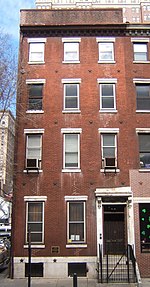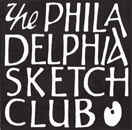Library Company of Philadelphia
The Library Company of Philadelphia (LCP) is a non-profit organization based in Philadelphia. Founded in 1731 by Benjamin Franklin as a library, the Library Company of Philadelphia has accumulated one of the most significant collections of historically valuable manuscripts and printed material in the United States. The current collection size is approximately 500,000 books and 70,000 other items, including 2,150 items that once belonged to Franklin, the Mayflower Compact, major collections of 17th-century and Revolution-era pamphlets and ephemera, maps, and whole libraries assembled in the 18th and 19th centuries. The collection also includes first editions of Moby-Dick and Leaves of Grass.
Excerpt from the Wikipedia article Library Company of Philadelphia (License: CC BY-SA 3.0, Authors).Library Company of Philadelphia
Underground Concourse, Philadelphia Center City
Geographical coordinates (GPS) Address Website External links Nearby Places Show on map
Geographical coordinates (GPS)
| Latitude | Longitude |
|---|---|
| N 39.94779 ° | E -75.16306 ° |
Address
The Library Company (The Library Company of Philadelphia)
Underground Concourse
19102 Philadelphia, Center City
Pennsylvania, United States
Open on Google Maps









